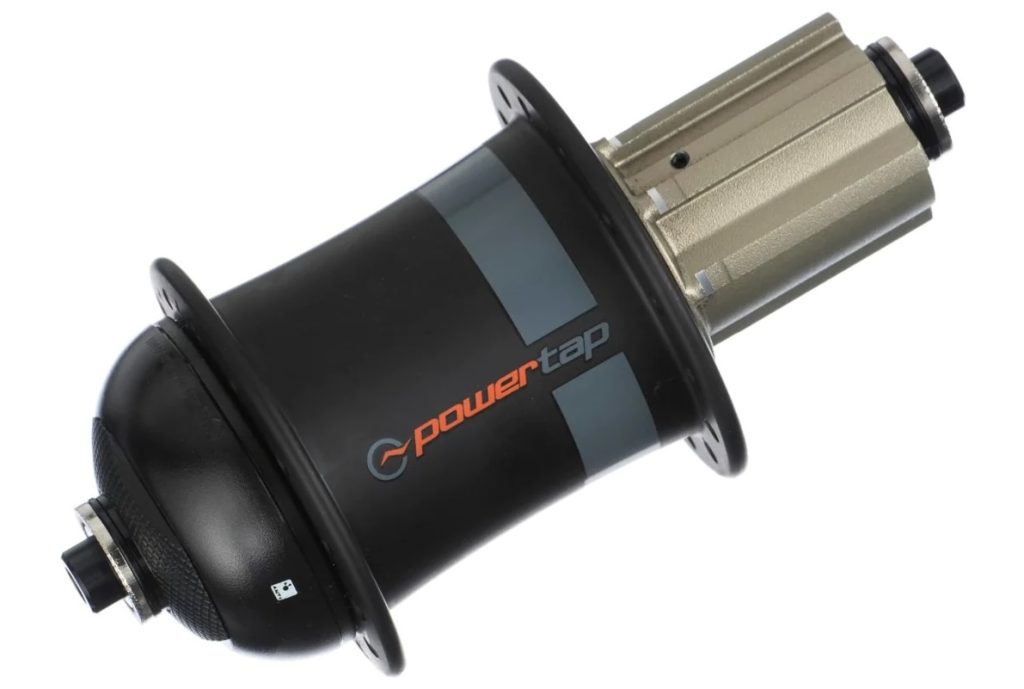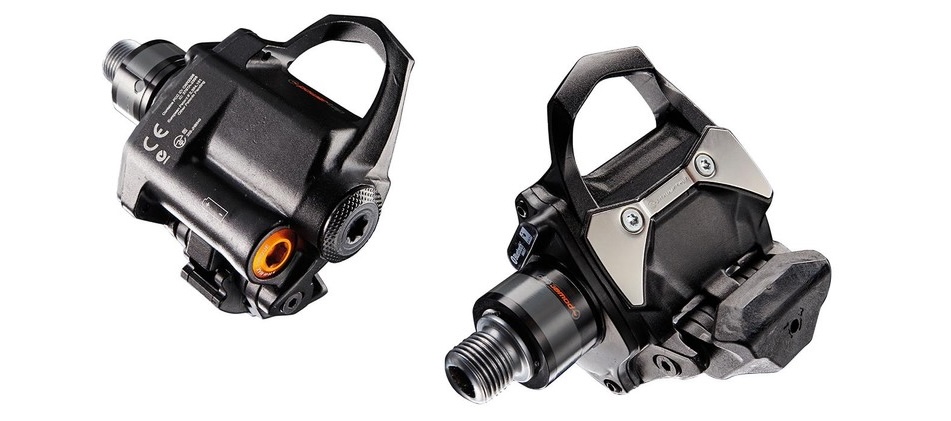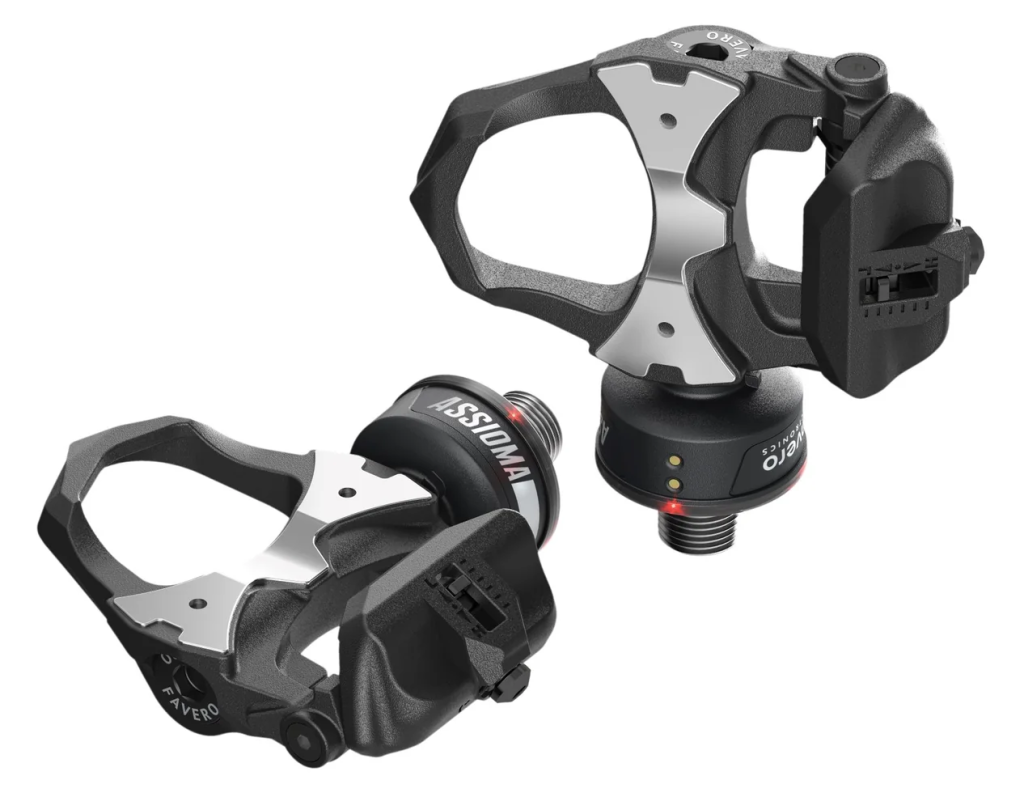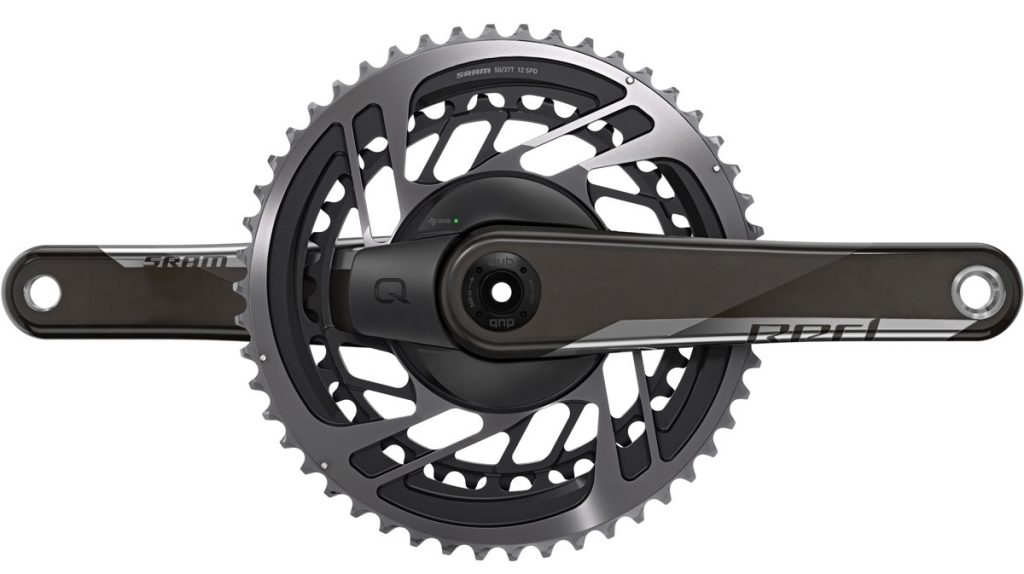In which I review the power meters I've been using over the last few years. All of these seem to be accurate and consistent in their data. This is a brief review of the four systems I currently use - and to cut to the chase, of these four power meters, which would I recommend as a power meter on a new bike build?
Given that two of these power meters are discontinued, the choice comes down to the SRAM Red chainset or the Assioma Duo pedals, and from the viewpoint of easy transfer between bikes I'd recommend the Assiomas (which can also be bought in a version to be fitted to Shimano pedal bodies). I should add that all four of these power meters have been absolutely faultless in use.
My first power meter was the Polar system that relied on chain tension to estimate power. This was fiddly to set up, extremely fiddly to keep working, and I suspect not very accurate. It used some kind of proprietary system to communicate with the head unit. I tried the Polar power meter because the alternatives were rather expensive - in recent years the price of power meters has dropped and the use of power meters has become rather more widespread.
The other power meters I use all test well by those people with the ability to do in depth testing - principally DC Rainmakerand GPLama - so I am reasonably confident in their inherent accuracy. I have occasionally compared power meters using the DC Rainmaker web app.
Each of these power meters comes with its own pros and cons, which I think I’ve addressed below.
Powertap G3 Hub
Before long I moved to a Powertap G3 hub, built into a Hed disc wheel. I’d decided not to go down the route of pedal-based power meters because I was then using Speedplay X-series pedals and I didn’t want to mix cleat systems - at that time there wasn’t a power meter pedal based on the Speedplay pedal. Plus, the power meter pedals then available were rather fiddly to set up, and didn’t look like they’d be easy to switch between bikes.

G3 hubs are powered by a CR2032 cell - changing this requires removing the wheel from the frame and removing the cap from the non-drive side of the hub. This requires a peculiar plastic tool with a three-sided interface which I guess could be problematic if you lose it! Firmware updates are applied via a cable connection under the cap. My G3 hub only uses ANT+ for communication, though a replacement cap offering bluetooth as well as ANT+ was available (may still be).
I am currently using this power meter with the Cervelo P5.
Powertap P1 Pedals
I bought the P1 pedals soon after they were released, as I really wanted to be able to switch them between bikes easily. Powertap released an updated version, the P2 pedals, wich I’ve not tried. After Powertap was bought by SRAM, their power meters were discontinued, and I think are only available on the secondhand market.

I’ve found the P1 pedals to be solid performers, though they seem a bit slow to connect to my Garmin head unit, and occasionally one pedal loses contact.
P1 pedals use AAA Lithium cells, one per pedal. They are easy to change, though a bit of care with the end caps is in order. Maintenance and firmware update is via blutooth connection to an app on a mobile device. Communication to apps (such as Zwift) is via bluetooth and ANT+. Garmin head units receive data via ANT+.
Note that Powertap was bought by SRAM, and as far as I am aware the G3 hubs and the P1 and P2 pedals are no longer availabe, except on the secondhand market.
I regularly swap these pedals between the tandem, two solo road bikes and my father’s old turbo bike. Swapping them out is really easy, uses an 8mm allen key. No obvious issues from fairly frequent swapping.
As with several other models, the Powertap pedals come with cleats that are ‘not quite’ the same as Look Keo cleats. However, I’ve not had issues with using genuine Keo cleats with them, though clipping in is sometimes not so easy, not I think due to the cleats but because the shape of the pedal body doesn’t help the cleat slide into position for engagement.
Assioma pedals
These pedals have been around for a while now, and have been thoroughly reviewed by DC Rainmaker (https://www.dcrainmaker.com/2022/04/power-meter-pedal-buyers-guide.html) and GPLama (https://gplama.com/powermeter-guide/) among others. Unlike the Powertap P1 pedals, the Assiomas have a rechargeable battery in the pod. The pedals come with two connectors (with suitably long cables) and a USB charger. Setup is via bluetooth and an app on a mobile device.

Communication to apps (such as Zwift) is via bluetooth and ANT+. Garmin head units receive data via ANT+.
These pedals are simple to set up and use, simple to keep charged, and easy to move between bikes. They deliver solid data with good interaction with Garmin head units.
Like the Powertap P1s, Assioma pedals come with Keo-like cleats. I have no problems engaging the cleats with these pedals. Assioma also supply these pedals as a set (Duo-Shi) without pedal bodies but with Shimano compatible pedal axles which can be used with Shimano pedal bodies.
SRAM Red AXS Chainset
I recently acquired a SRAM Red AXS chainset powermeter as a component in a new road bike. It’s powered by a CR2032 cell that is pretty easy to fit via an easily accessible port. Communication is via bluetooth and ANT+ with which it connects to my Garmin head unit. The AXS components (including gear shifters, mechs and power meter) are managed via an AXS phone app which is pretty intuitive.

This power meter works very well, I’ve had no communication problems between the power meter and the app or with the Garmin.
This isn’t the kind of power meter I’d be keen to swap between bikes. The chainrings and power meter come as a unit, and you can’t just replace the chainrings when they are worn - you need to send in the whole assembly for replacement at reduced price (I think half price). That’s a bit of a hassle, and I hope that there will be appropriate stock in the future. You also can’t change the sizes of the rings in this process. Note also that SRAM chainrings are designed to match their FlatTop chains which have a slightly different roller dimension which affects compatibility.
